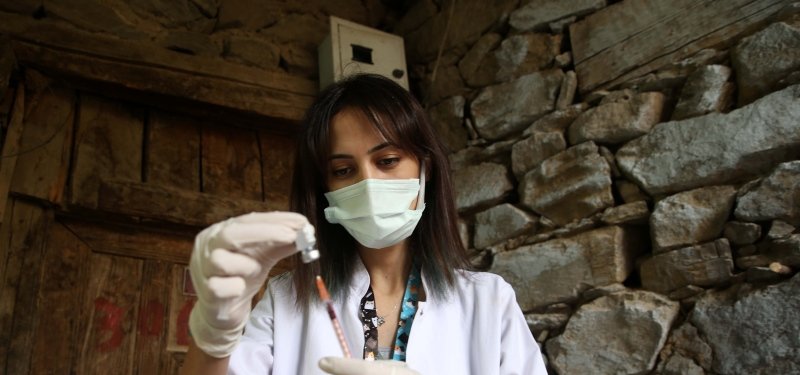
Over 53.65M coronavirus vaccine shots given in Turkey to date
- Türkiye
- Anadolu Agency
- Published Date: 10:41 | 05 July 2021
- Modified Date: 10:41 | 05 July 2021
Turkey has administered over 53.65 million doses of COVID-19 vaccines since it launched a mass vaccination campaign in January, according to official figures released on Monday.
More than 36.25 million people have gotten their first doses, while over 15.85 million have been fully vaccinated, showed the Health Ministry count. Over 1.54 million people have also gotten third jabs meant as boosters some three months after full vaccination.
"Turkey administered 1 million COVID-19 jabs in less than 24 hours. Turkey is determined to gain immunity against the contagious COVID-19 disease," said Health Minister Fahrettin Koca on Twitter.
According to ministry data, over 1.05 million doses of vaccine were administered over the past 24 hours, and to date over 58% of the country's adult population has gotten at least one vaccine dose.
"When the first case was detected, the whole country was worried. Over 36 million people got at least one dose of vaccine in order to protect themselves from the disease and to reach herd immunity. One case meant danger. 36 million means trust. Let's grow that trust," Koca also tweeted.
The country also confirmed 4,678 new coronavirus cases in the last 24 hours, and 35 deaths.
As many as 4,735 more patients have won the battle against the virus.
Amid a nationwide fall in virus cases and an expedited inoculation drive, Turkey has entered a new normalization phase, lifting almost all virus-related restrictions.
But seeking to limit the spread of the virus' Delta variant, it has suspended flights from Bangladesh, Brazil, South Africa, India, Nepal, and Sri Lanka.
Meanwhile, passengers from the UK, Iran, Egypt, and Singapore are required to have a negative COVID-19 test result taken within 72 hours prior.
Since December 2019, the pandemic has claimed over 3.98 million lives in 192 countries and regions, with nearly 184 million cases reported worldwide, according to the US' Johns Hopkins University.

